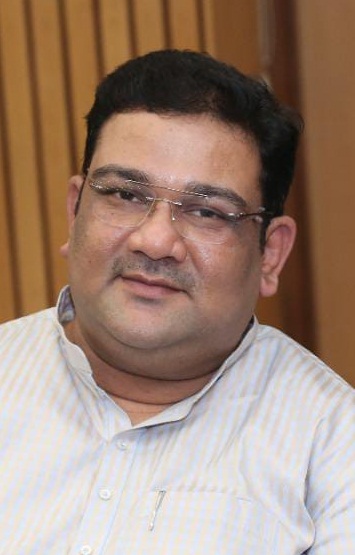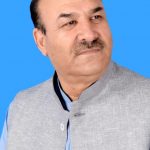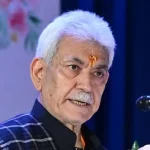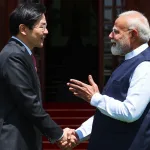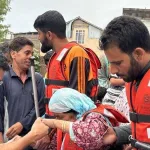The Rashtriya Swayamsevak Sangh (RSS) is one of the oldest and largest social organizations in India. It started in 1925 with the goal of building a strong and united Bharat (India). From the beginning, RSS has believed that India is one country and all people living here—no matter which religion they follow—are part of one family.
The RSS teaches its members to love the country, help others, and work for unity. It has lakhs of volunteers (called swayamsevaks) who wake up early every morning, attend daily training sessions (shakhas), and offer service to society. These volunteers are taught discipline, physical fitness, patriotism, and social responsibility.
Some people think RSS only works for Hindus. But this is not true. RSS believes in “Bharatiyata”, which means Indian culture. According to RSS, Indian culture includes people of all religions—Hindus, Muslims, Sikhs, Christians, Jains, Buddhists, and more. Everyone who loves India is part of this culture. Over the years, many people misunderstood RSS because of false information or political reasons.
The RSS has started many new efforts to speak directly with people from different communities, especially the Muslim community. These efforts are based on dialogue, understanding, and mutual respect. One important step was taken in September 2019, when RSS chief Dr. Mohanji Bhagwat met Maulana Arshad Madani, a respected Muslim scholar and leader. They spoke about how both communities—Hindus and Muslims—should work together to keep India united and peaceful.
They agreed that both communities have contributed to the country, and must now come together to protect its future. This meeting was historic because it showed that the RSS is ready to talk openly, clear misunderstandings, and build trust. Both leaders agreed that violence, hate speech, and communal fights are harmful to all communities and must be stopped through honest discussions and mutual cooperation.
In September 2022, Dr Mohanji Bhagwat did something very special. For the first time in RSS history, he visited a mosque and a madrasa in Delhi. This visit was at the invitation of Imam Jb Umer Ilyasi, the head of the All India Imam Organisation. Bhagwat sat with madrasa students, talked to the imams, and gave a message of peace and unity. During the visit, Bhagwat said that all Indians, whether they are Hindu or Muslim, are brothers.
He said that the nation comes first, and every religion teaches peace and respect for others. He also said that real Indian culture teaches us to live together, not fight with each other. After this mosque visit, Mohan Bhagwat also held a special meeting with five well-known Muslim intellectuals: S.Y. Quraishi (former Chief Election Commissioner), Najeeb Jung (former Lt. Governor of Delhi), Lt Gen Zameer Uddin Shah (former Vice Chancellor of Aligarh Muslim University), Shahid Siddiqui, and Saeed Shervani.
These leaders had a respectful and meaningful conversation with Dr Mohanji Bhagwat. They talked about what is wrong in society—hate speech, fear among minorities, and false stories on social media. Bhagwat listened patiently and said that all these problems must be solved with truth, respect, and dialogue.
In January 2023, another important meeting happened at the home of Najeeb Jung. Senior RSS leaders like Dr Krishna Gopalji, Shri Ramlal, and Dr Indresh Kumar joined this meeting. They sat with Muslim scholars and leaders and discussed how to stop hate, create better understanding, and build trust across communities.
The RSS leaders explained that the Sangh is not against any religion. They said that the real goal of RSS is to unite all Indians, not to divide them. They said people should be judged by their character, not by their religion. In July 2025, RSS took another big step. More than 60 Muslim religious clerics were invited to a meeting at Haryana Bhavan in Delhi.
This meeting was again organized by Dr Umair Ilyasi. Dr Mohan Bhagwat and other senior RSS thinkers attended. In this meeting, Bhagwat gave a clear and positive message. He said: “We need sadbhavana (good feelings) in society. No temple or mosque alone can protect India. Only unity and brotherhood between communities can do that.”
Dr Bhagwat proposed some very practical ideas. He said that Pujaris (temple priests) and Imams (mosque leaders) should visit each other’s places. He said that students from Gurukuls and Madrasas should sit together and learn from one another. These steps will help remove fear and build real understanding between the two communities. The RSS also suggested that both communities should hold joint cultural events, health camps, cleanliness drives, and educational seminars. When people work together, they see each other as friends, not enemies.
In all these meetings, one thing was very clear: RSS wants unity, not division. It believes that if Indians keep fighting with each other, foreign powers and anti-national elements will take advantage. Only a strong, united India can become a developed and peaceful nation. Bhagwat has also spoken against violence and hate many times. He said that “those who kill people in the name of religion are not following Hindu dharma.”
He believes that real dharma means love, forgiveness, service, and truth. RSS is also working to make sure that people from all religions feel safe and respected. Its volunteers are trained to help people during natural disasters, organize relief work, teach poor children, and serve the elderly—without asking anyone about their religion.
Some people still try to paint RSS in a negative way, but truth is becoming more visible now. Many Muslim organizations and leaders who once stayed away from RSS are now openly joining these dialogue sessions and appreciating the mature and calm approach of the Sangh.
The RSS does not believe in short-term popularity. It believes in long-term nation building. Its goal is “Rashtra Nirman”—creating a strong India where people from all religions live with respect, follow the law, and work for the country’s progress. The phrase “Hindu Rashtra” is often misunderstood.
Dr Mohan Bhagwat has clearly said that this does not mean a country only for Hindus. It means a country based on Indian culture, where everyone is treated equally. You can be Muslim, Christian, Sikh, or anything else, and still be part of this cultural nation. Today, more and more people are seeing this change.
They are seeing that RSS is not against anyone, but only against those who try to divide India. RSS wants Muslims to be confident, educated, and proud Indians—just like any other citizen. Bhagwat’s leadership shows wisdom and responsibility. He listens carefully, speaks clearly, and believes that truth, not politics, is the way to solve problems.
The road ahead is not easy. It takes time to remove the pain of the past and fears of the present. But with consistent dialogue, open hearts, and national spirit, the Sangh is proving that peace and unity are possible.
The RSS today is writing a new chapter in India’s history—a chapter of trust, understanding, and togetherness. Its work shows that India’s future will be safe and strong only when every community feels respected and involved. RSS stands for unity. RSS stands for service. RSS stands for a strong and united India. And for that, it will continue to walk the path of dialogue, respect, and nation-first thinking.
(Author is Professor in Comparative Literature and Secretary General, Forum for Muslim Studies (FMSA). Email: [email protected])


